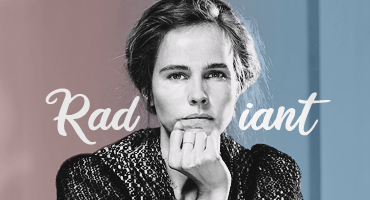The film, from director Tarsem Singh, stars Henry Cavill as Theseus and features Stephen Dorff, Isabel Lucas, Freida Pinto, Luke Evans, Kellan Lutz, John Hurt and Mickey Rourke as men and Gods waging an epically scaled war.
Singh, who directed the visual feasts The Cell and The Fall, brings his stylish approach to Greek mythology and, for the first time, to 3D. He also offers an update on his next project, an untitled adaptation of Snow White that will star Lily Collins, Armie Hammer and Julia Roberts.
Lucas, meanwhile, stars as Athena, the Goddess of wisdom. She made her feature film debut in Transformers: Rise of the Fallen and will also star in the forthcoming Red Dawn.
Unfortunately, due to time constraints, the interview had to be held prior to the panel, but you can check out our reaction to the footage by clicking here.
You can also click here to read our previous interview with producer Mark Canton and check back soon for our exclusive talk with Henry Cavill and Luke Evans.
CS: You have me at a bit of a disadvantage because I haven’t seen any of the footage yet, but tell me how the whole project began for you.
Tarsem Singh: The idea of immortality was interesting to me. It came through a Greek tale. We put Theseus into it and it kind of got more and more interesting. There was the idea that people deal with immortality just with Gods, who were immortal until they screwed up amongst themselves. You have people who believe that deeds make you immortal, which would be someone like Theseus. You have people who believe that seed makes you immortal, which is someone like Mickey’s character who just wants to rape and plunder and see if you live forever in generations of DNA mutation. Just with that in mind, I thought it was a very interesting premise and I jumped on board.
CS: What about you, Isabel?
Isabel Lucas: I read the script just as I was finishing a film in Australia. The script left a really powerful impact and I thought it was something really refreshing. It was based on an original concept and not a comic or a cartoon. The idea that it was from Greek mythology that the film was born is sort of the beginning of all storytelling. To go back to that is, I think, a really interesting jump.
CS: Can you tell me a little about your character?
Lucas: Yeah. I play Athena, who was the Goddess of wisdom and Zeus’ daughter. She and the other Gods are conspiring against Zeus who is sort of their boss in a way — or who they take orders from — to intervene with the humans and help them find peaceful resolutions.
CS: Tarsem, you’re a famously visual director. How quickly did the look of “Immortals” click for you?
Singh: About two years. I usually don’t rush into something. If it weren’t for the visuals, you could take a great script and develop it in three months. But for this, it meant starting in the ether. You have to start there and say, “Okay. There’s no comic strip.” So I particularly chose to go in the style of Caravaggio lighting and a type of fighting more like you have in “Fight Club.” It has much more to do with obeying, overall, the physics. Usually, when you get Gods in a movie, it’s them picking up boulders with their bare hands and throwing people across 20 buildings. I don’t know how to do that. I didn’t want supernatural strength. They had to obey the laws of physics. I looked at Renaissance paintings and they’re fantastical in a certain sense, but they don’t seem to require having somebody jump 85 buildings up. Maybe jumping down, but not up. With those kind of things, you lay the rules down and make a world.
CS: Isabel, in playing Athena, where do you draw the most inspiration from? I’m assuming a lot of books and paintings.
Lucas: A lot of that. Growing up, my mom used to read to me from a book of all the myths. I knew all the Gods and Goddesses and archetypes and how they’re still relevant today. The archetype being the energy of the Goddesses. One book in particular that I related to was “Goddess in Every Woman.” Pretty much most of the preparation was in reading.
CS: Greek myths tend to be pretty abstract. Athena hatched out of Zeus’ head. Is that the kind of thing that we’ll see in the film?
Singh: No. For me, I looked at that and thought that myths are never consistent. We looked at those myths from the Greek times and I knew that I wanted to take just one thing from them. They had a lot of incest going on among them. They had a lot of stuff that I just said, “For me, it’s the idea of living forever.” If you were a God and were going to live forever, you would not look like an 18 year old. You would live forever looking like a 21 to 28 year old. You’d want to the wisdom of someone who had lived long, but you wouldn’t want to look like them. The physical structure could be changed. You can see that in Renaissance paintings. They would take an old man, paint his face and put their boyfriend’s body on it. For me, I didn’t want to do face replacement. I decided to just embrace the fact that they are wise. They have their own rules. They’ve been around forever but, at the same time, they do not look old. With that in mind, it just changed. That’s their background and we left them there. You do not deal with their origin except maybe in a five-second intro that says there was turmoil in the heavens.
CS: Isabel, tell me about Athena’s personality. Is she funny? Is she stoic?
Lucas: She’s stoic, sure. She was always around in the wartimes, providing counsel and rationale and helping strategize how to bring peaceful resolutions. How she was depicted in history was always a bit older. Maybe in her mid-30’s. Someone like Cate Blanchett, perhaps. That sort of energy that’s very wise and serious. But Tarsem’s idea was to have the Gods be a lot younger and that was sort of the seed of what they became. He encouraged me a lot to play her younger and more vulnerable. Maybe even a little bit passive, which wasn’t how we classically know Athena.
Singh: Yes, because no matter how bold and how wise you are, your dad is still your dad. He’s going to be one up on you. For me, all the family quarrels that come around the Gods had to be embraced.
CS: Tarsem, looking at some of the films you’ve made, it seems like your style would very much lend itself to 3D. How quickly did you take creating a film with that technique?
Singh: Very easily. I just looked at it and it was exactly that. It’s how I tend to shoot. It’s much more applicable to 3D than most directors. A lot of directors’ work is easily transferable. [Tim] Burton would be one. But if you’re looking at Paul Greengrass’ work, you don’t really want to see “The Bourne Identity” in that particular way. It works for him because of his grittiness. But for people that tend to shoot sort of tableau-ey with long takes, 3D is sort of made for that. It lets you judge the space much better. I just think that, fortunately, the style that I’ve done in my previous films — not that I’ll keep doing this forever — but for the last few that I’ve done, 3D fits it very well. It was a logical progression. We did a lot of scenes that we shot in 3D and a lot of the other stuff we shot, we shot in 2D and took plates in 3D. I found it too limited in terms of action to shoot it all in 3D. Some things that you do, the camera makes it look like a 1950’s movie because the camera becomes too bulky. The action sequences and most of the stuff with the Gods was actually converted. But it’s really about knowing what you want to do with it instead of just giving it to somebody to convert. The little girl and the visions and everything, though, we actually shot in 3D.
CS: Isabel, what sort of difference did that make for you as an actor?
Lucas: It didn’t really affect me.
Singh: No, it didn’t. That’s the best thing we could do, too. The technology should not affect where you want to go with it. I do have a picture of all of you dressed as Gods wearing the glasses and looking in the monitor, though. Everyone is standing in these costumes wearing really dark glasses.
CS: You’re moving directly from this into “Snow White.” How’s that coming along?
Singh: Very good. On this one, they let me make a film without having any real name, until Mickey [Rourke] came along. That was much later in the movie and they let me make such a big film. I just thought, “Let’s see how much interference there is,” and there wasn’t any. The studio was really supportive of all the changes and everything I wanted to do. The same thing with “Snow White.” If I’m being given a script and told, “shoot this,” I don’t think I’m there. I’m not at a stage in my career where I just want to take a job. I said, “My DNA has to be in it,” and they encouraged it. I said no ten times before I read it. When I read it, I said, “Okay, I have a take. Do you want to hear it?” I told them the take and they said, “Move along.” Then, six or seven months later it just moved so quickly that we’re there.
 Welcome to Unicorn, your one and only resource for the talented Aussie actress Isabel Lucas, known from "Home & Away", "Transformers: Revenge of the Fallen", "MacGywer" and "Careful What You Wish For". Here you can find detailed information, exclusive high quality photos, all the latest news, as well as other multimedia such as videos, audio files and graphics. I hope you will enjoy the site, and don’t hesitate to get in touch if you have any questions or concerns. Make sure to bookmark us, and check back!
Welcome to Unicorn, your one and only resource for the talented Aussie actress Isabel Lucas, known from "Home & Away", "Transformers: Revenge of the Fallen", "MacGywer" and "Careful What You Wish For". Here you can find detailed information, exclusive high quality photos, all the latest news, as well as other multimedia such as videos, audio files and graphics. I hope you will enjoy the site, and don’t hesitate to get in touch if you have any questions or concerns. Make sure to bookmark us, and check back!

















